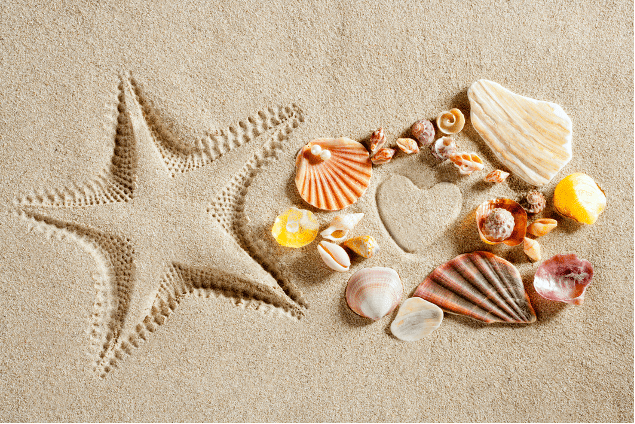1. Enjoy plenty of fresh fruits and vegetables
There are many choices but some of the best “cooling” foods include watermelon, cucumber, berries, tomatoes, corn on the cob, leafy greens, peaches, plums, cherries, and mint. Homemade lemonade is also a great choice (lemon juice, water, and honey). Consider making your own popsicles with fresh fruit and use blended watermelon or coconut water as the base. These will keep you cool and help you stay hydrated. For food safety, never leave perishable food in the sun or heat for more than two hours. Monitor food tables at picnics and outdoor events. If you are the host, put an “expired time” tag on food items.
2. Keep Active
Consider planning an active vacation with plenty of physical activities built in. Even visiting theme parks can include a lot of walking. Other activities include paddle boards, bicycling, roller skating, hiking while camping, and visits to national parks. There are so many great ways to stay active during the summer.
In warm weather, be sure to exercise earlier in the morning or later in the day. Look for shady areas if exercising outdoors and always take a water bottle with you. You may consider adjusting some of your activities based on the weather or air quality reports.
3. Enjoy Alcohol Responsibly
In the summer months, alcohol is a factor in boating accidents, drownings, and motor vehicle crashes. When combined with increased sweating in the heat and sun, drinking alcohol can lead to dehydration and heat stroke. If you are drinking alcoholic beverages, be sure to have one glass of water after each drink.
4. Stay Hydrated for a Safe Summer
Warm weather can easily lead to dehydration and potentially heat exhaustion. Keep in mind, that water helps flush waste products from the body and regulate temperature through sweating. It also helps protect sensitive organs such as the brain and joints. One recent study showed that heat-induced dehydration is stressful for the brain and can have negative effects on cognitive function. For a safe summer, drink even when you’re not thirsty and eat fruits and vegetables with a high water content (see #1 above).
The U.S. National Academies of Sciences, Engineering, and Medicine determined that an adequate daily fluid intake is: About 15.5 cups (3.7 liters) of fluids a day for men and 11.5 cups (2.7 liters) of fluids a day for women. Spread your water intake throughout the day.
5. Practice Sun Safety
Wear sunglasses to protect your eyes (children should too) and cover up with a hat and ultraviolet protective clothing (light colors reflect the sun). Look for shady areas or bring a beach umbrella to parks, pools, or other sunny outdoor locations. When it comes to sunscreens, select products carefully since many contain harmful chemicals that are absorbed by your body. Check out the Environmental Working Group’s Guide to Sunscreens for some recommendations.
6. Practice Swim Safety
According to the Centers for Disease Control (CDC), drowning is the number one cause of death in children ages 1 to 4 and the number two cause of death in children ages 1 to 14. For a safe summer, follow these swim safety tips to prevent injuries and accidents:
- Swim with others (never swim alone).
- Be sure kids are closely supervised even if a lifeguard is on duty. Designate a “water watcher” in group settings and that person should give his or her full attention (not browsing on a cell phone).
- For an ocean environment, always swim near a lifeguard. Ask the lifeguard for water and weather conditions. Comply with any warnings.
- Use a life vest when needed.
- If you have a pool, secure it with a barrier when it’s not in use.
- Enroll children (and adults who can’t swim) in swim lessons.
- For adults, alcohol and swimming are not recommended. And never jump off ocean piers or cliffs into water.
7. Plan Well for Road Trips
It’s common to take at least one road trip during the summer. To avoid fast food, plan with travel-friendly foods. Start by packing a small cooler and loading it with water, lemonade, coconut water, and sparkling water infused with fresh fruit. Here are some other ideas:
- Make a smoothie and freeze it. After a few hours in the car, you’ll have a fresh cold meal replacement. You may not even need a cooler for this drink.
- Consider uncured, organic meat sticks (or jerky). These travel well and provide a good source of protein.
- Pack some small servings of raw nuts (1/4 cup is a serving). Use zipper plastic snack-size bags.
- Find a protein bar with a low sugar content. Look for less than 7 grams of “added sugar” on the label.
- Fresh, organic whole fruit travels well and provides excellent vitamins, minerals, water, and fiber. Good choices include bananas, apples, peaches, plums, cherries, and pears.
8. Use a Natural Bug Repellent
Summer is a time for mosquitos and other annoying pests. Ticks are more common in the summer, especially in the Northeast and Midwest. Tick numbers have been spiking in the US, and they spread many diseases, including Lyme Disease, co-infections, and viruses. There are a variety of new repellent options, both for clothing and to be used on the skin, that can help protect your family from ticks, mosquitos, and other pests.
For a safe summer, rather than turning to toxic bug repellent, consider healthier alternatives. Remember, what you put on your skin, goes into your bloodstream. Many natural bug repellents use essential oils such as citronella, cedar wood, tea tree, and lemongrass instead of toxic pesticides. You can purchase them from a natural food market or search for a recipe online to make your own.
A Cornell University study found that cedar oil is a natural and highly effective tick repellent. If you’re ready to give this a try, here’s the recipe: In a small spray bottle mix 1/3 cup of distilled water, ¼ cup of witch hazel, and 30 to 50 drops of cedar oil (witch hazel helps to disperse the oil since water and oil don’t mix). Bring the bottle along in your car or handbag so you’ll be prepared for any outdoor activity. You can also spray this on clothing, shoes, or socks.
9. Know Plants That Can Cause Trouble
Poison ivy, oak, or sumac can completely ruin your summer. If you come into contact with any of these plants, rinse the area with soapy water for five minutes. If you are not sure what these plants look like, go online and study them, especially if you are planning on hiking or doing anything in heavily wooded areas (maybe even in your own backyard).
10. Be Safe When Grilling
We love the flavor of grilled food in the summer but be sure to follow the rules for safe grilling:
- Place your grill outdoors (always) and on a flat, stable surface and away from anything flammable.
- Use propane or infrared grills rather than charcoal and charcoal starter fluid.
- If the flame goes out, wait a few minutes before re-lighting.
- Wear appropriate clothing (no floppy sleeves).
- Keep your grill clean.
- Check for gas leaks.
- Keep a fire extinguisher nearby and have baking soda on hand for a grease fire.
Take time to appreciate all that summer has to offer. Each morning when you wake up or just before you go to sleep at night, think of 2-3 things you are truly grateful for. Try to think of different things each day. Gratitude improves physical and psychological health and can make any season better. Enjoy your safe summer.

